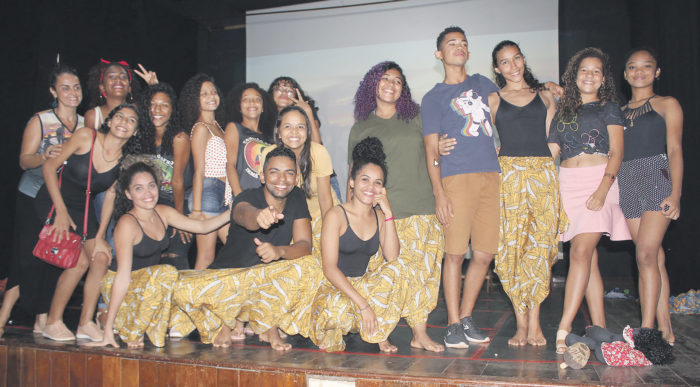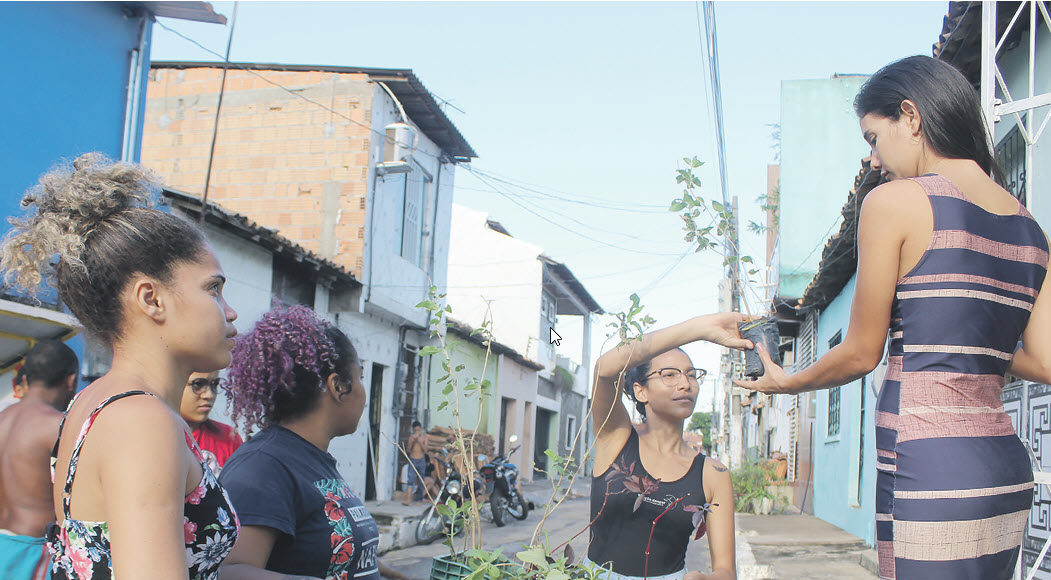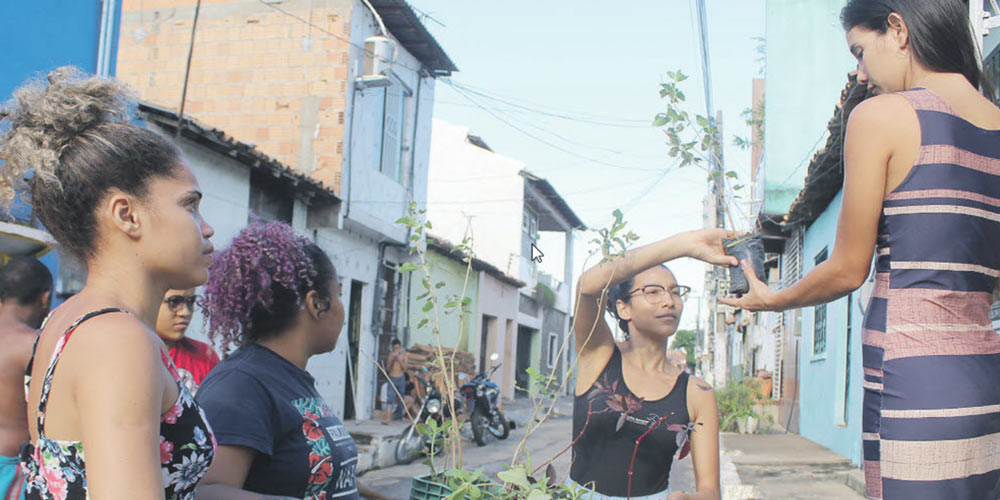At the end of their European tour of Belgium, Germany, Austria and Poland, performance troupe AfroRaiz return to their home city of Marabá, Pará, at the confluence of the Amazon rivers Itacaiúnas and Tocantins.
Based in the poor neighbourhood of Cabelo Seco, AfroRaiz are part of Rios de Encontro (Rivers of Meeting), a community project and base for a string of educational and cultural projects to involve children and young people. Their emphasis is on Bem Viver, Good Living, the idea, hope and plan to imagine and begin to believe sustainable futures and to confront climate change with hope and determination, instead of fear and resignation.
LAB correspondent Dan Baron is coordinator of Rios de Encontro and accompanies AfroRaiz on their tours. This report, from newspaper Correio de Carajas, was translated by Mike Gatehouse
The Rios de Encontro (Rivers of Meeting) project ended the second week of its eighth Amazon Beautry Festival with the distribution of medicinal plants, books from the Pages of Life Library, and film showings for children and young people in the Coruja Cinema in Cabelo Seco, where the project has been based since 2009. Now, the distribution of free medicinal plants by young people in Cabelo Seco is spreading throughout the city of Marabá.
The Festival reached a wider public through programmes on TV-stations SBT and Liberal and an Afro-Brazilian show performed at the teacher-training institute PIBID in the Federal University of the South and South-East of Pará (UNIFESSPA). There was also a stage performance in the Ciné Marrocos, a presentation and training workshop with the Afro-Connection project of the Irmã Theodora school, and a celebration of Afro-Brazilian dance for 50 parents and children in the Nursery Education Unit (NEI) Maria de Consolação.

Manoela Souza, the project’s cultural organizer, said “It was a real pleasure, after a three month overseas tour, to get back to handing out plants and books to the local residents, together with invitations to attend our performance of Rio Voador (Flying River). We got a warm welcome on the doorsteps, but it was sad to see how the community is being damaged by the federal government’s austerity programme..
Dan Baron, the co-ordinator of Rios de Encontro, closed the session at PIBID as follows: “We congratulate UNIFESSPA for the importance it gives to the arts in primary education and cultivating the self-confidence of children, from their earliest years, to confront the unprecedented challenges of climate change. We feel proud that Rios de Encontro helped to inspire the university to install four solar plants this year. When we have 30,000 forest fires breaking out every day on our planet, and our scientists warning that we are living on borrowed time. Then we must build environmental literacy into the basic education of every school; and equip those schools with solar panels, community gardens; and thus ensure that every child in Marabá can confront a future of uncertainty with calm, without panic; and that they can join with secondary school students the world over to create sustainable futures.
After 24 shows in Europe, AfroRaiz took its Rio Voador (Flying River) performance to the Ciné Marrocos theatre on 3 December. ‘We were returning to the stage where we presented our first Afro-contemporary dance performance in 2012,’ said show co-director Manoela Souza. ‘180 residents of Cabelo Seco,’ she continued, ‘artists, students, teachers, activists, lawyers and government officials filled the theatre. They took away the inspiration of knowing that 15,000 people in Europe had watched this show; that the good news is that the world today knows that the Amazon is in flames, but everywhere people are asking: “how can we collaborate to build cities that are truly green?”
‘The show starts with the shock of climate change. But it ends with everyone dancing for Bem Viver (Good Living), a project for an alternative community with its roots in the Amazon. We were able to demonstrate that Marabá has the determination, the capacity and the imagination to create flying rivers, with a flood of new projects in place of the ashes of destructive profit. Our festival provides the seed of Marabá Bem Viver.’




